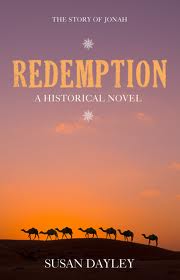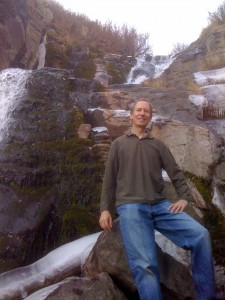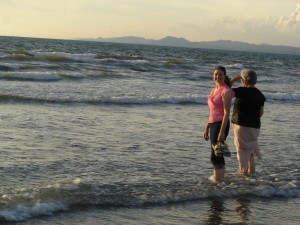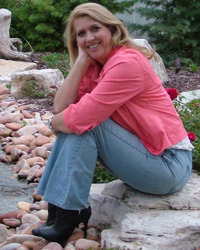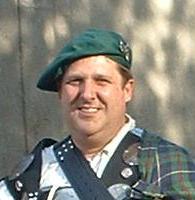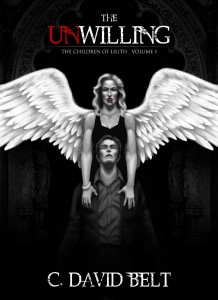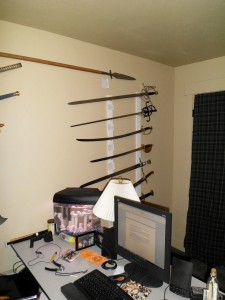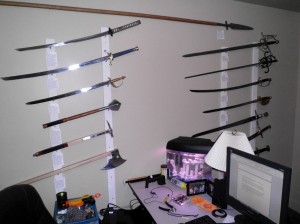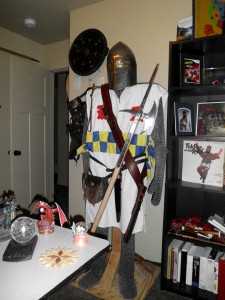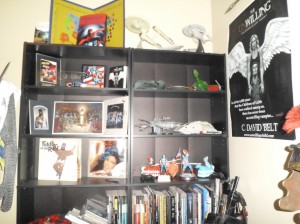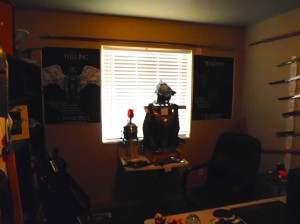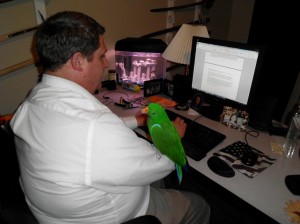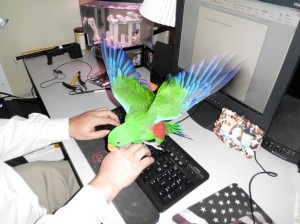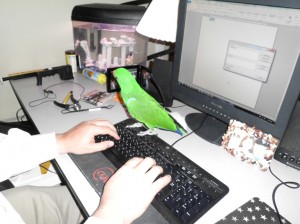I’m back in the chair for another interview after a two-month hiatus and I’m already booked up into August with some great writers. Today, I’m talking with Susan Dayley, author of REDEMPTION: THE STORY OF JONAH and the soon-to-be-published COLD PURSUIT. One highlight of her new novel is its interactiveness. So we decided to try to make this interview as equally interactive as possible. Click on the links for a few extras, revealing some of Susan’s favorite things. Hope you enjoy it!
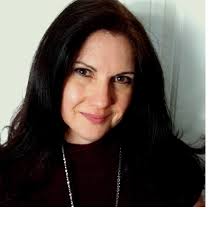 Let’s get right to it, shall we?
Let’s get right to it, shall we?
ME: What was your most formative childhood memory in terms of where you are now as a writer, and how old were you?
SUSAN:
Growing up, the second of nine children, life seemed meant to be fun. We lived outdoors in the summer and when the tried and true games wore through, we improvised new ones. One time when I was about 12, I invented a game that had a fairly long run. It was based on a witch capturing people when they left the safety of their “homes” (corners of the back yard). The captives were placed in her “dungeon” (usually the front steps). The object of the game was to free others while not getting caught; however, to do so, a “spell” would have to be broken. The captive was told what was needed (such as a pinecone, a smooth stone and a leaf), and they relayed the information to their rescuers. In the meantime, those in the backyard, who were not out freeing someone, carried on, making berry soups or visiting each other. It was a combination of playing house, tag, and scavenger hunt. When I use my imagination, I’m rarely content with simplicity, and I like to try innovative ways of doing things. Like my latest book. Chips and Hummus.
(Sorry we don’t have a cover to share yet, but these are recipes I’m going to have to try, since I grew up with hummus. Yummy!)
ME: Describe the circumstances that led to your first piece of creative writing, and, if you can recall, the gist of the story or poem.
SUSAN: I began writing simple verses early. My third grade teacher, years later, recalled the social studies report I did set to rhyme. But it was in Junior High that I received the confidence to pursue writing. The highlight came one day at a school assembly that featured 5-6 students reading papers they had written on the theme of America. Mine was about George Washington. All of the other students were chosen from the advanced creative writing class. I was the only one from the introduction class. Sitting in a chair on the stage, blinded by the spot light, I realized that someone besides my mom thought I could write. The Piano Guys.
(Okay, whether you’re a LOTR fan or not, this is great.)
ME: How has your family background affected your writing, if it has? (And I’d love a picture of you with the family you grew up in.)
SUSAN: My grandparents often gave us books as gifts. One child at a time, one birthday at a time, a library of classic children’s literature was built. I read them all from Joe’s Boys to Robin Hood. My tomboy tendencies were reflected in my preferences (I also read all of my brothers’ Hardy Boys Mysteries). (Me too! Hardy Boys and Tom Swift.) Later my granddad introduced me to Last of the Mohicans and other classic works. I was a copious reader. Because our little house was bursting with children, I had few places to read. My standbys were at night under the covers with a flashlight, and up the backyard willow tree, where I’d climb with my book in my teeth. Spudnuts. (I imagine they played a large part in her growing up years.)
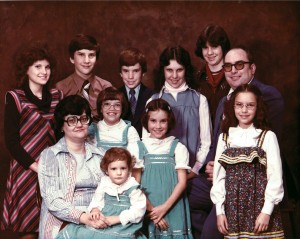 (Susan’s the tall one in back to the right.)
(Susan’s the tall one in back to the right.)
ME: Okay, what gave you the nerve to attempt your first novel, and can you describe it?
SUSAN: I was teaching kindergarten at a private school and one of the literary selections was the story of Jonah from the Bible. After researching it (far beyond what the children would receive—including Ships of Tarshish, trade routes, Nineveh, other ancient cities along the way, Jewish traditions, etc.), I recognized there was a story there that hadn’t been told. It was my first novel and far more narrative in style than I now do, but the ancient details and legends are fascinating. (Did you know that in the Mishnah, Jonah is presented as the son of the widow of Zerephath, the one Elijah raised from the dead?) My working title had been: The Terrible City, the Reluctant Prophet, and a Second Chance. Obviously, too long. It ended up as, Redemption. The Lord of the Rings.
(Hmmm…I think she’s a LOTR fan.)
ME: Can you describe the process it took for you to get published? Also, if you’ve published any others since, please tell us about them.
SUSAN: Submit, submit, submit. Pace and drum fingers. Finally, an acceptance! wahoo! Since I’m late to this process, this is only my second published book. [I don’t mind if we skip this question. Lol] (Sorry, no skips. All writers have to struggle. It’s part of the process.) Bugs—they make my nose itch.
(How can they be a favorite if they make her nose itch? Also, I can’t help wondering if she’s comparing publishers to bugs.)
ME: Please describe your writing process and where you do your best work. (I must have a photo of your writing space.)
SUSAN: For lack of a sturdy willow tree, I’ve had to retreat to practical. My desk is in the kitchen. When I need a break, I can quickly unload the dishwasher or fold a batch of clothes etc. Since we’re empty nesters, I have the luxury of writing in the center of where I spend most of my time.
There I begin with outlining. With Cold Pursuit and the sequel this was the most difficult part. Not only is it a mystery, with clues popping through and events accumulating, but with four different endings, I had to keep track of what was being developed for which option. Victor, Idaho where my great-great grandpa homesteaded.
(I forgot to ask if this is the area she lives in today. Or maybe she just likes visiting.)
ME: As I understand it, you are about to publish a novel in a genre entirely different from historical fiction. Why the change, and what else will be different about this novel?
SUSAN: I still love historical fiction. I have the story of Hezekiah sitting on the cyber shelf and “yoohooing” at me once in a while. I’ve invested a year in that project, and I absolutely am in love with his story. Someday I’m going to pull him out again, but I’m turning it into a history—he’s too epic to be a simple novel.
Cold Pursuit was the result of accepting that the eBook industry was striding forward, and asking how I could embrace the new technology. I decided to create an interactive eBook—or my take on one. Not just the multiple endings, but links to online resources are throughout the book. Now how cool is that? (Remember, I don’t do “simple”.)
Plus I like romance. I admit, to my husband’s delight, I’m a great fan of kissing and such.
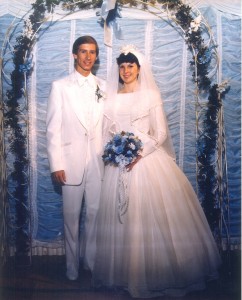 (Susan’s romantic interest, Mark, THEN…)
(Susan’s romantic interest, Mark, THEN…)
(And NOW)
Summer thunderstorms from the front porch.
(Let’s see. We’ve gone from recipes to LOTR to bugs to Grandpa’s homestead and now a drenching thunderstorm. I guess it’s a feast for our senses.)
ME: Please give us a brief rundown of the plot of COLD PURSUIT.
SUSAN: How often, when you read a book, or watch a movie, do you feel like the story is predictable? Or you don’t like the way it ended? With Cold Pursuit, you can’t be sure where it’s going and if you aren’t happy with the ending, you can try a different one. Cold Pursuit is a multiple ending story: the reader can choose which direction the story goes at two different junctions. Kennady and Atticus team up to figure out what is missing from the lab of Dr. Takishida. In one option it is the professor himself, in another it is his files. Both of those options divide into two endings for a total of 4 different mysteries and romantic twists. And one of them leads to Hot Pursuit. (INTRIGUING!) Tree houses.
(I love tree houses! Except for the bugs. But these are some great ones!)
ME: Are there any other ambitions you’d care to share with us?
SUSAN: Traveling to amazing places, reading timeless stories, gathering in dozens of grandchildren (I may have to start adopting some), and never serving deviled eggs again. (Why not? I love deviled eggs and bless the hands that take the time to prepare them.) Chuck Mangione. (Yes!!!)
ME: Finally, why have you been taking math classes at this point in your life?
SUSAN: Because when I raise my hand, someone calls on me. Seriously, I’m finishing a long-lost degree, and since my transferred credits are counting mostly as electives after 30 years, I still have some generals to knock out. That means, though I’m an English major, I take algebra. Arrgh! (However, I’m rather proud of my “A” I got last semester).
(You should be!)
And her last favorite thing was this picture of her and her mom standing in the South China Sea at sunset:
It looks like she’s already begun some of her traveling adventures. Once you stop feeling a little jealous, check out Susan’s blog or her books on Amazon.
Next Wednesday I’ll be chatting with YA author, Cindy C. Bennett.
Originally posted 2013-05-29 13:51:41.

